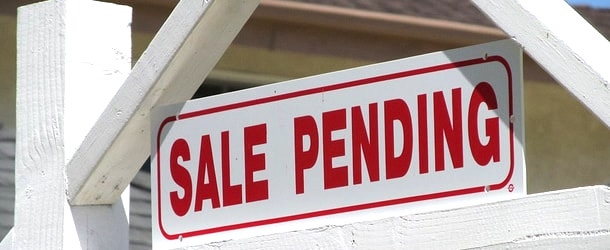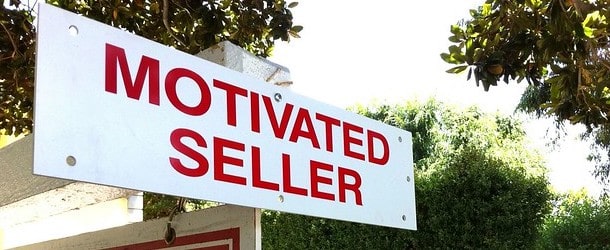
Mortgage rates keep on marching lower and lower, with new records broken seemingly every week.
But with all the fervor surrounding mortgage rates, some lenders are playing the “how low can we appear to go” game.
For example, mortgage lenders may be talking about their lowest rates (with multiple points required), as opposed to offering their par rates, the latter coming at no extra cost to the consumer.
So instead of being presented with a mortgage rate of say 2.75% on a 30-year fixed, you may see a rate as low as 1.99%. Or even a 15-year fixed at 1.75%!
Here’s the problem; with mortgage rates breaking record lows time and time again, 10+ times so far in 2020, many homeowners are finding the need to refinance the mortgage twice. Or even three times.
And those who chose to pay points at closing, only to refinance within months or a year, essentially left money on the table.
Or they decide not to refinance to an even lower rate, knowing they’ll lose that upfront cost that’s already been paid, which is also a tough situation.
Mortgage Rates Aren’t as Low as They Appear
- In order to advertise lower mortgage rates lower than the competition
- Lenders will often tack on discount points to their publicized rates
- Meaning you’ll have to pay a certain amount upfront to obtain the low rate in question
- Make sure you’re actually comparing apples to apple when mortgage rate shopping
Guess what? That absurdly low mortgage rate you saw advertised isn’t really as low as it seems.
Typically, when you see a rate that’s beating the pants off the national average, and all other lenders, mortgage points must be paid.
And when the rate is really, really low, it usually means multiple mortgage points must be paid.
In other words, you wind up paying a substantial amount of money, known as prepaid interest, to secure an ultra low, below-market interest rate.
Assuming your loan amount is $200,000, two points to obtain a rate of 1.99% on a 30-year fixed would set you back $4,000.
If the loan amount were $400,000, we’re talking $8,000 upfront to secure that super awesome low rate.
Tip: Watch out for lenders and mortgage brokers who quote you a low mortgage rate, but neglect to tell you that you must pay a point (or two) upfront to obtain it.
Often, this tactic is employed to snag your business, and once you’re committed, the truth comes out, which is why mortgage APR is so important.
Is Paying for an Even Lower Mortgage Rate Right Now the Smart Move?
- When mortgage rates are already really low (record lows at the moment)
- It becomes somewhat less attractive to pay points at closing
- It could be pretty expensive to get just a slightly lower rate that will save you very little
- And your money might be better served elsewhere, especially if inflation worsens
Here’s the thing. Mortgage rates are already so low that paying mortgage discount points to go even lower isn’t all that attractive.
There’s a great chance mortgage rates will surge higher in the future as inflation finally rears its ugly head. And at that point, you’ll already have an insanely low interest rate.
On top of that, you’ll be able to invest your liquid assets in other high-yielding accounts, likely something pretty darn safe with a rate of return that will beat your low mortgage rate.
So why keep going lower and lower if you’re already paying next to nothing on your home loan?
Additionally, you won’t want to spread yourself too thin, especially if you’re buying a new house.
There are a ton of costs associated with a new home purchase, so committing all your liquidity to an even lower rate could mean that you won’t have money for relocation costs, furnishings, necessary repairs, or an upgrade.
And as mentioned, mortgage rates do have the potential to move even lower than current levels, meaning it could make sense to refinance again, favoring those who didn’t pay much to anything at closing.
Or better yet, just went with a no cost refinance to avoid paying anything to the bank or lender.
As always, do the math to see what makes sense for you. If you’re super serious about paying off your mortgage early, then buying down your rate could be the right move.
It will certainly vary based on your unique financial situation, the loan amount, the cost to buy down the rate, and how long you plan to stay with the loan/home.
Certainly take the time to compare mortgage rates with and without points, but don’t just chase a low rate below an emotional threshold, like 2%.
And determine how long it’ll take to pay back any points at closing with regular monthly mortgage payments.
Personally, locking in a 30-year fixed rate below 3% seems like a tremendous bargain.
Investing the money elsewhere, such as in stocks or bonds or wherever else, could end up being a lot more rewarding than paying prepaid interest at closing.
Perhaps more importantly, you’ll have access to that money if and when necessary for more pressing matters.
Lastly, you can always pay extra each month if and when you choose to reduce your principal balance and total interest paid. So that’s always an option regardless of the rate you wind up with.
Read more: Are mortgage points worth the cost?



